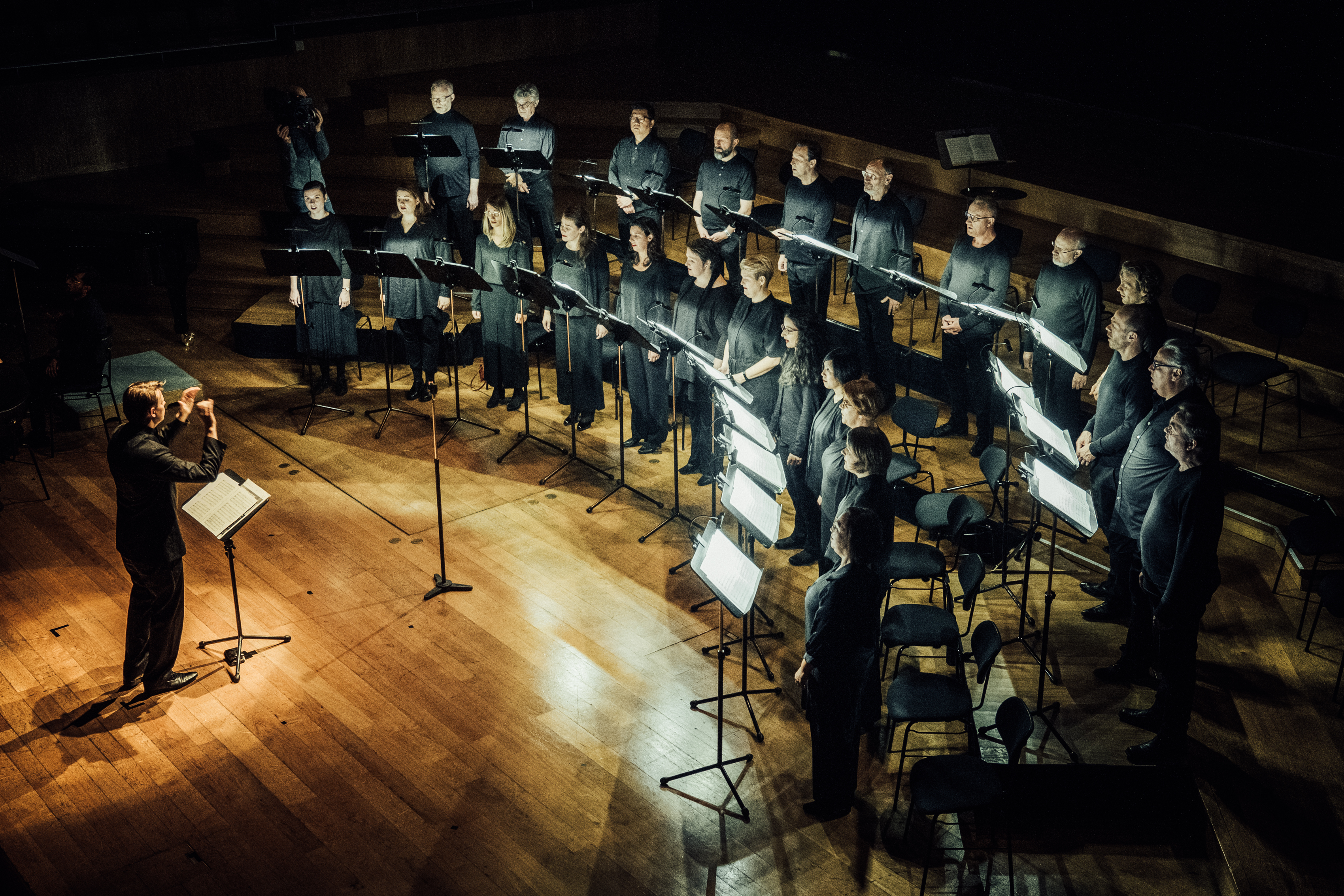Brahms componeerde Ein Deutsches Requiem ter nagedachtenis van zijn moeder en zijn goede vriend en mentor Robert Schumann. Is de klassieke Latijnse dodenmis vooral een theatrale evocatie van het einde der tijden, Brahms toonzetting behelst een aantal eigenhandig gekozen tekstfragmenten. De nadruk ligt daarbij eerder op het leed van de nabestaanden dan op de bovenpersoonlijke heilsgeschiedenis van de katholieke kerk. In de versie voor piano vierhandig, soli en koor, die hij zelf schreef, komt deze nieuwe individualistische religiositeit nog beter uit de verf. Ein Menschliches Requiem kortom (zoals hij het werk aanvankelijk ook wou noemen). Tussen de verschillende delen door haalt het Vlaams Radiokoor herinneringen op aan Brahms’ kindertijd en zijn vriend Schumann. Van die laatste horen we heel toepasselijk enkele Kinderszenen.
Brahms composed ‘Ein Deutsches Requiem’ in memory of his mother and his good friend and mentor Robert Schumann. If the classical Latin Mass of the Dead is above all a theatrical evocation of the end of time, Brahms’s setting includes a number of text fragments that he chose himself. The emphasis is more on the suffering of the bereaved than on the supernatural, sacred history of the Catholic Church. In the version for four-handed piano, soloists and choir, which he wrote himself, this new individualistic
religiosity comes even more to the fore. It was Ein Menschliches Requiem (as he initially wanted to call the work). Between the different parts, the Flemish Radio Choir reminds us of Brahms’s childhood and his friend, Schumann. From the latter we most
appropriately hear some Kinderszenen.
Bart Van Reyn dirigent
Jan Michiels en Inge Spinette piano
N.N. sopraan
N.N. bariton
Vlaams Radiokoor
J. Brahms (1833-1897)
–
Ein Deutsches Requiem
R. Schumann (1810-1856)
–
delen uit Kinderszenen
In samenwerking met het Vlaams Radiokoor

